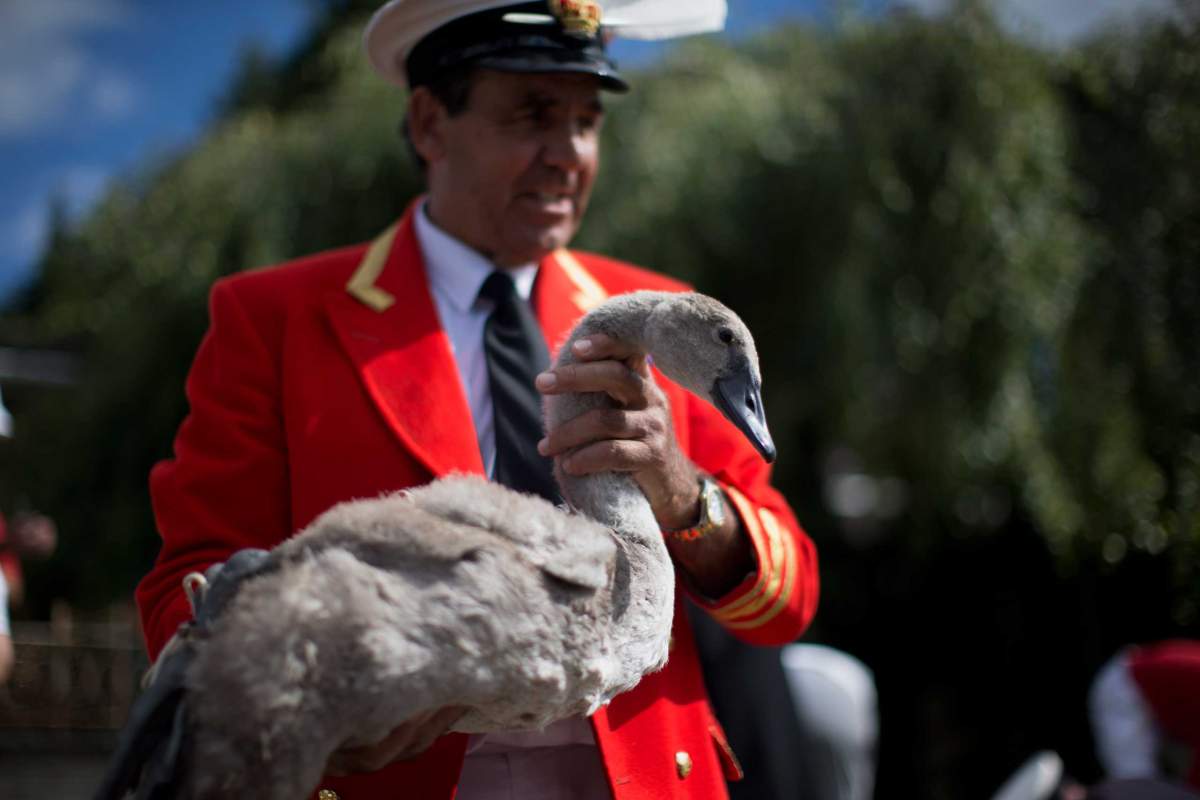One of the great things about the English is that they cling fiercely to the past (a commodity of which they have more than North Americans.) Just watch the opening of Parliament by the monarch or debates in the House of Commons to see countless relics of days gone by. Why can’t the Queen enter the lower house? Why does she have to summon the Commons to the House of Lords? Why is the distance between the front benches of the ruling party and the Opposition greater than two swords’ length?

As every schoolboy knows, English swans are royal birds, formerly supervised by the Keeper of the King’s Swans and four swanherds, but now under the care of the Warden of the Swans and the Marker of the Swans. These worthies are responsible for the annual Swan-Upping.
Did you know that English coronations up until the reign of William IV were proceeded by a challenge from the King’s Champion? Here is the last version, used in 1820. “If any person, of whatever degree soever, high or low, shall deny or gainsay our Sovereign Lord George, King of the United Kingdom of Great Britain and Ireland, Defender of the Faith, son and next heir unto our Sovereign Lord the last King deceased, to be the right heir to the imperial Crown of this realm of Great Britain and Ireland, or that he ought not to enjoy the same; here is his Champion, who saith that he lieth, and is a false traitor, being ready in person to combat with him, and in this quarrel will adventure his life against him on what day soever he shall be appointed.” When King Charles III is crowned in a few years look for the Royal Standard Bearer: he will be by law a descendant of the hereditary King’s Champion.
Did you know that at the 1953 coronation of Queen Elizabeth II, the Grand Falconer was forbidden to enter Westminster Abbey unless he swapped his live bird for a stuffed one?